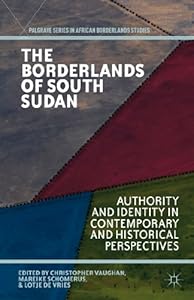 Coming soon to a bookshop--or more realistically a university library--near you, and containing an essay by yours truly. I wrote chapter three, 'Unclear Lines: State and Non-State Actors in Abyei.'
Coming soon to a bookshop--or more realistically a university library--near you, and containing an essay by yours truly. I wrote chapter three, 'Unclear Lines: State and Non-State Actors in Abyei.'
Here is the concluding paragraph:
"In Abyei, border talk became a frame in which claims about the sovereignty and area of the territory were made visible. None of the actors, however, actually inhabited the frame. The Misseriya used the ABC and PCA to make a claim to Abyei that attempted to secure for themselves what are actually secondary rights to the territory; the NCP used border talk as a mask, to perpetuate a permanent precarity that allowed them to extract as much as they could from the territory. This is not to say, of course, that there are no rebound effects: as the Misseriya took up the maximal language of the state, they found their secondary claims (and the possibility of coexistence with the Ngok Dinka) eroded; by taking up the language of the state, they found their practical possibilities for action reduced to a binary between absolute ownership and absolute dispossession. The Sudanese state, on the other hand, continues to not require the demarcation of its own borders, and instead uses the discourse of state power as part of an apparatus that also sets up a structure of illegality: actors that the state can use, while disavowing their actions. Nomads acting like states. States acting like nomads."
It should be out in December 2013. You can order your copy here
